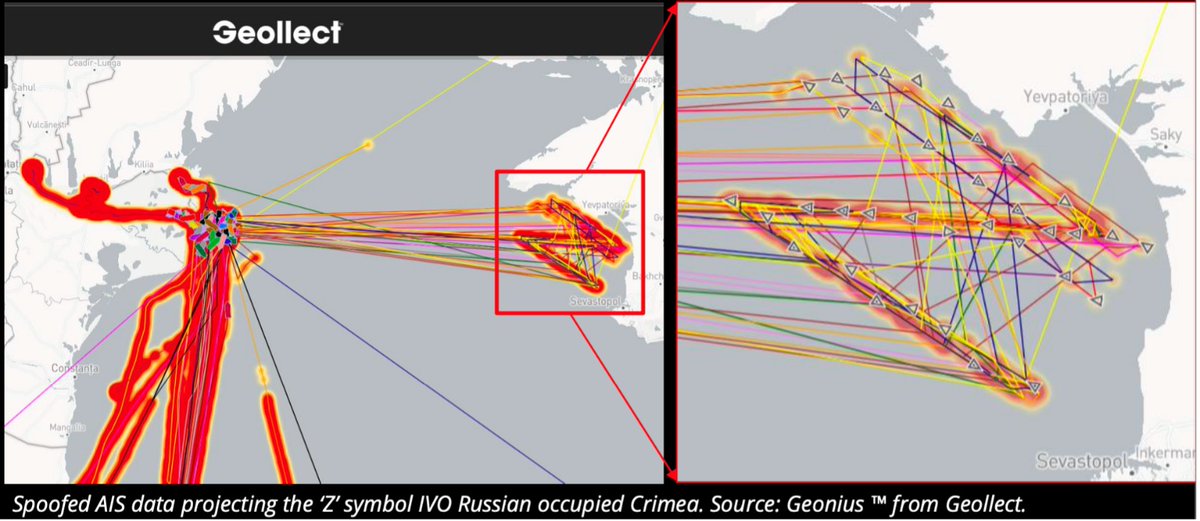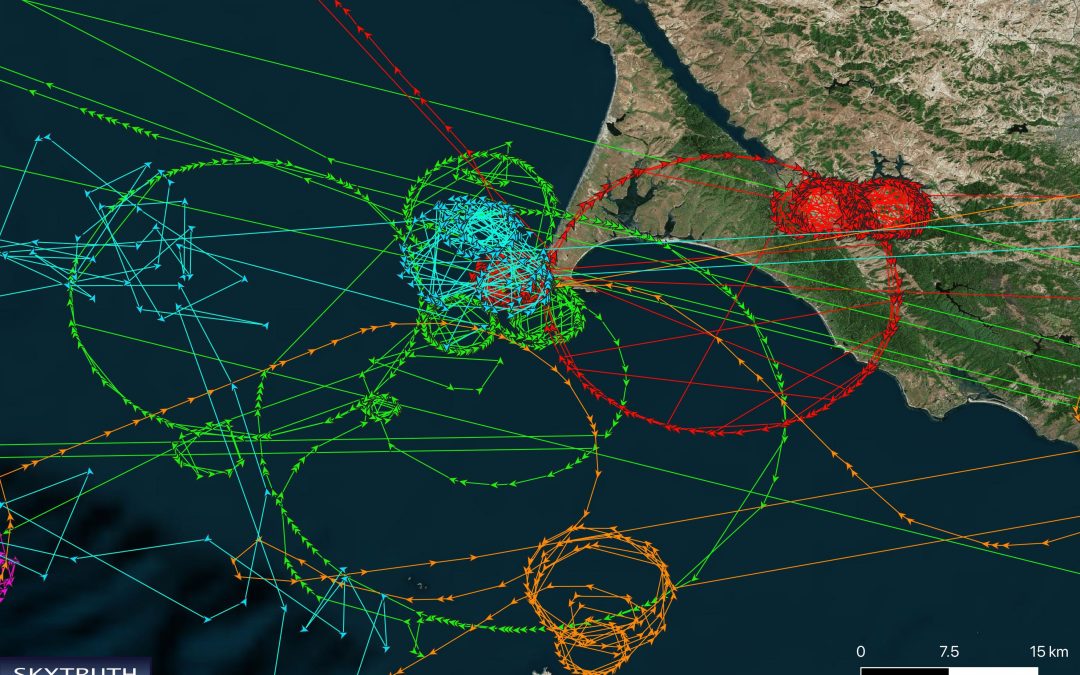Image: Skytruth
What’s New: Numerous reports of AIS spoofing. The most prominent was by the New York Times about a Russian oil tanker trying to evade surveillance and maintain its insurance coverage.
- Of course, AIS spoofing, especially by Russia, is not new. See, for example, our 2017 announcement about the Black Sea.
Why It’s Important: There are many reasons mariners and others spoof AIS:
 As a statement, or because “they can.” Like when activists recently drew a 65km long Russian pro-war “Z” in the Black Sea. – Image courtesy UK Defense Intelligence
As a statement, or because “they can.” Like when activists recently drew a 65km long Russian pro-war “Z” in the Black Sea. – Image courtesy UK Defense Intelligence
- To avoid surveillance by their company or governments. This happens a lot with fisherman operating in illegal, unauthorized areas, perhaps even in another country’s Exclusive Economic Zone without permission.
 To avoid financial sanctions and losing their insurance. As the NYT article observes, the ships can’t operate without insurance, and they can’t have insurance if they are clearly violating sanctions. So this raises the question of whether insurance companies are turning a blind eye to the deception and indirectly helping fund the Russia war machine. Image from NYT.
To avoid financial sanctions and losing their insurance. As the NYT article observes, the ships can’t operate without insurance, and they can’t have insurance if they are clearly violating sanctions. So this raises the question of whether insurance companies are turning a blind eye to the deception and indirectly helping fund the Russia war machine. Image from NYT.
Note that almost all of this is GPS spoofing which is the only navigation feed for AIS. AIS transmits GPS-based location information to others. Having a second navigation and timing signal that was much different from GPS/GNSS could help prevent a lot of this deception. Right now, it is just too easy.
Maritime has a tradition of secrecy thousands of years long. Concealing the best trade routes. Keeping the best fishing spots known only to a few. Smuggling goods to avoid customs duties. It is hard to imagine lots of mariners NOT trying to conceal their location and activities.

Fake Signals and American Insurance: How a Dark Fleet Moves Russian Oil
The Cathay Phoenix is not a lone rogue ship, but one of at least three tankers identified by The New York Times taking extraordinary steps to hide their true activity, a practice that helps them to elude U.S. government oversight and puts their American insurer at risk of violating recent sanctions on Russian crude oil.


